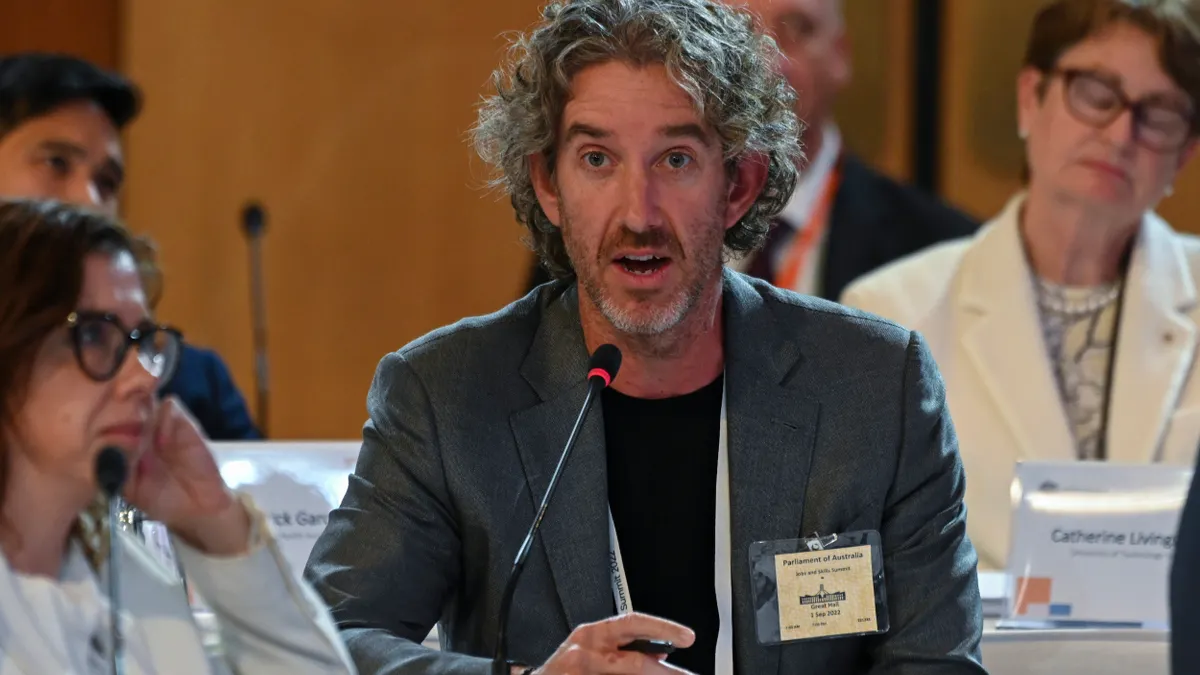When Amy Shelly was CFO of Optiver, a Dutch-owned options market-making firm, she faced a nerve-wracking task: Explaining to the company’s supervisory board, none of whom she had met before, how the company was responding to an enforcement action against it. Her strategy: Admit when she didn’t know something, and keep a promise to follow up quickly with an answer. The strategy has served her well.
“I spent days trying to prepare myself for the material and realized I’m just not going to be able to answer all of the questions,” Shelly, a 25-year finance professional veteran, said last week in a CFO Thought Leader podcast. “One of the things I was told before walking to the meeting, ‘If you don’t know the answer, be honest.’”
Today, Shelly is CFO of Options Clearing Corp. (OCC), one of the most little-known yet systemically important financial services companies in the U.S.
“I [faced this situation] the first time I presented to the OCC's board of directors,” she said. “I didn’t know them all very well. I didn’t know their personalities or backgrounds, or how they would ask their questions. I couldn’t anticipate a lot, and it was that experience, talking with the Optiver supervisory board, that I remembered, if I don’t know the answer, be honest.”
Change agent
Shelly said she starts every finance job with the goal of helping the business make better decisions, faster. That has meant developing a relationship with technology staff so she can understand thoroughly the tools she uses and ensure she has the right staff with her. When she joined OCC five years ago, she was given a mandate to update the finance operation, which had become a neglected part of the company.
“I was told, ‘We need you to make changes,’” she said. “My staff in corporate finance was underdeveloped, not enough talent, not the right talent, uneven talent, and really old technology. We used a general ledger system I had never even heard of before.”
Shelly said she spent the first year and a half implementing a new enterprise resource planning (ERP) system for both financial reporting and budgeting and forecasting, then rolling out one of several modules. The first automates the company’s procurement process. The next will be a treasury management system to help her team track its daily banking transactions.
Systemically important
OCC is the world’s largest equity derivatives clearinghouse. The company clears, settles and risk-manages all equity derivatives transactions in U.S. markets, options exchanges and futures exchanges. The company was designated a systemically important financial services company under the 2010 Dodd-Frank Act, which requires it to have a policy covering how it determines its capital, owner’s equity, and clearing fees.
Approval of the company’s latest policy is pending with the Securities and Exchange Commission (SEC). “It was approved back in 2015, and had been re-approved two [or] three times,” she said. But this year, the SEC sent it back.
Setting the clearing fee as part of the policy is particularly important, because the fee represents the company’s bread and butter.
“Ninety-five percent of my revenue comes from the clearing fee, which I don’t control and cannot always predict,” she said.
The company functions as a low-cost provider, so the fee isn’t large, but it offsets that by volume: It clears and settles millions of contracts every day. This year, the daily total reached as high as 35 million contracts. And next year, it’s expected to clear and settle almost 20 million contracts a day.
To help it maintain its ability to function optimally at such high volumes, Shelly is overseeing what the company calls its renaissance initiative, a sweeping, multiyear overhaul of its systems, including the IBM mainframes that serve as the backbone of its operations.
“The system that clears, settles and risk-manages these positions every single day is about 20 years old, and we are looking to create a more modular, more agile system,” she said. “We’ll be looking to move all that processing to the cloud, so as our volumes increase, we can expand and manage that without an issue.”
Shelly likens the IBM mainframes to diesel engines. “They can process an exorbitant amount,” she said. “They're just very cumbersome to make changes to.”
Updated financial facilities
In addition to the technology revamp, Shelly is overseeing changes to the company’s liquidity facilities. Her team keeps a minimum $3 billion in a clearing fund — what she calls her insurance policy — which consists of a combination of cash and U.S. Treasury bonds, to cover a transaction in the event of a default. She also maintains a $2.5 billion bank credit facility that uses funds from a 20-member consortium her company manages, and another $1 billion bank-related credit facility.
She’s in the process of creating a $500 million repo facility in which the company will pledge Treasury bonds and cash on a short-term basis to cover defaults. She also plans to introduce pension funds to the non-bank credit facilities.
“From a diversification standpoint, these pensions are new for OCC,” she said. The timeline for that begins next year. “I’ll be spending time researching, reaching out, making introductions, building relationships, seeing if there’s interest on both sides and seeing if we can put a transaction in place,” she said.
Shelly said financial services is a high-stress business, but she’s found a way to keep her cool: triathlons. After college, she started running marathons to decompress. Now she’s running, bicycling and swimming in Ironman competitions.
“It’s a way to clear my head get some sanity,” she said. It also forces her to be smart about how she uses her time. “I like form and structure,” she said. “It’s a great opportunity to come back and be ready to go, from a work perspective.”






















